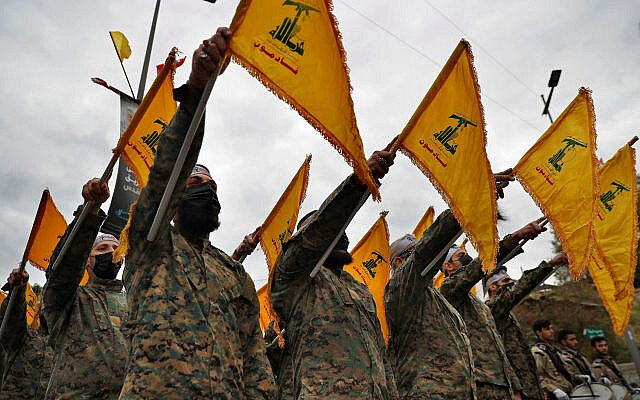Israel playing with fire
TEHRAN - Concerns over an all-out war between Israel and Hezbollah have once again been pushed to the forefront as the regime intensifies attacks and rhetoric against Lebanon.

Israel and the Lebanese resistance movement have been exchanging fire since the regime launched war on the Gaza Strip in early October.
Hezbollah has stressed that its attacks against Israeli positions won’t stop unless Tel Aviv ends its brutal onslaught on Gaza.
Nearly six months after waging war on Gaza, Israel has turned a blind eye to international calls to bring an end to its assault on the besieged Palestinian territory which has so far claimed the lives of 33,000 people.
Also, some 300 people, including around 50 civilians, have been killed in Israeli air strikes and shelling in Lebanon since October 8. That is a day after Israel launched its genocidal war on Gaza.
Israel has targeted both United Nations peacekeepers, UNIFIL, and the Lebanese army.
Israeli media revealed on Tuesday that a meeting was held last week to present war minister Yoav Gallant with how best to prepare Israelis for a full-blown war against Hezbollah.
On Friday, Gallant also affirmed the regime’s intention to expand the military campaign against Hezbollah and increase the rate of attacks in the north.
In mid-February, Israeli military Chief of Staff Herzi Halevi signaled that the regime wants to go to war with Hezbollah.
"We are now focusing on being prepared for war in the north," he said.
It is not entirely clear whether Israel is making threats against Hezbollah to cover up its failures to defeat Hamas or wants to drag the Lebanese movement into a wider conflict.
Unforeseen consequences
Undoubtedly, if Israel decides to test the resolve of Hezbollah it will have to face unforeseen consequences of such a reckless move.
Hezbollah has already fought off two Israeli wars against Lebanon in 2000 and 2006. The movement forced Israel to retreat in both conflicts.
Since the 2006 war, Hezbollah has considerably boosted its military capabilities in the face of Israel’s acts of aggression.
The resistance movement’s manpower is estimated to number up to 100,000 fighters and reservists.
The tip of Hezbollah’s spear is the elite Radwan fighting force which is experienced in sniping operations, close-quarter battles in built-up areas, and incursions behind enemy lines.
Hezbollah is underpinned by its sophisticated arsenal and has increased its stockpile of missiles from 14,000 in 2006 to about 150,000. The movement has also developed precision-guided missiles and its drone programs.
The October 7 military operation that was carried out by Hamas in southern Israel brought the regime’s vulnerability to light. Israel’s months-long war on Gaza has also shown that it is unable to defeat resistance.
In comparison with Hamas, Hezbollah is by far more powerful and is capable of dealing devastating blows to Israel.
Israel is playing with fire if it wants to enter a full-blown conflict with Hezbollah.
Hezbollah Deputy Secretary General Sheikh Naim Qassem has already warned that if Israel commits a “foolish act and attacks our territories, there would then be a new version of the 2006 July war”.
Likewise, if the regime of Prime Minister Benjamin Netanyahu is tempted into a third war with Hezbollah, the U.S., which is the regime’s main backer, will be responsible and accountable for widespread repercussions.
A full-fledged war with Hezbollah will spill over into the entire West Asia region. As a result, American forces in the region will have to pay a heavy price in the wake of rising anti-U.S. sentiment over Washington’s support for Israel’s genocidal war on Gaza.
source: tehrantimes.com